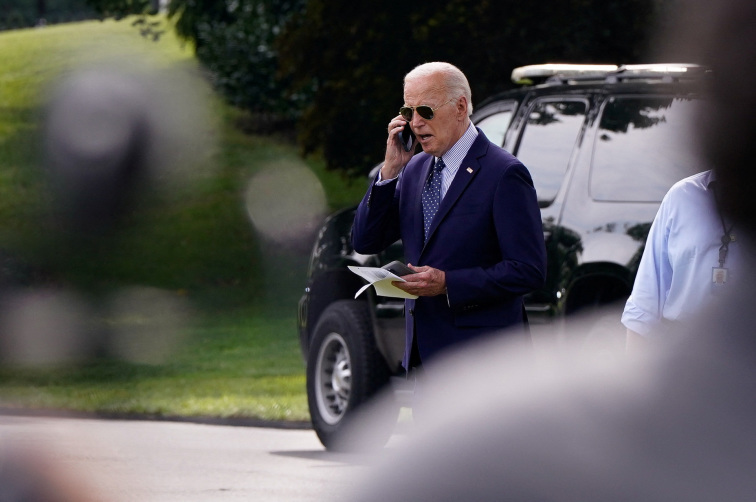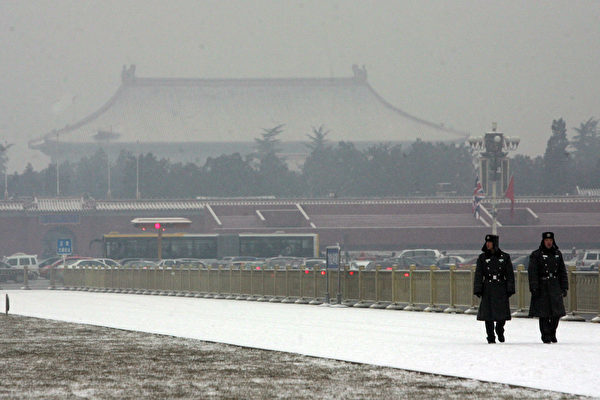On July 9, the Australian Federal Cyber Intelligence Agency issued a warning, specifically naming a state-sponsored Chinese hacking group for conducting ongoing malicious cyberattacks against Australian government and private sector institutions. The agency noted that the group is actively seeking new targets. (Illustration: Tomohiro Ohsumi/Getty Images)
[People News] "The Chinese Communist Party (CCP) eavesdropped on President Trump and everyone around him for six months, stealing massive amounts of data from our telecommunications network," stated former U.S. National Security Advisor H.R. McMaster during a recent panel at the Council on Foreign Relations in Washington, D.C.
This revelation is not the first of its kind.
In October 2024, multiple U.S. media outlets reported that Chinese hackers had breached Verizon’s telecommunications system, leading to phone call leaks. Several government and non-government personnel’s phones were compromised, including those of President Trump and Senator Vance.
On December 7, 2024, Anne Neuberger, the U.S. Deputy National Security Advisor for Cyber and Emerging Technologies, revealed at the Manama Dialogue—a regional security conference in Bahrain—that the United States believes a Chinese cyber espionage campaign dubbed "Salt Typhoon" targeted the phones of "very senior" American political figures, recording their conversations.
McMaster argued that the CCP’s prolonged eavesdropping on Trump’s phone calls was intended to prepare for a potential "nuclear strike" against the United States.
In reality, the eavesdropping on Trump and others is merely one small part of the CCP's extensive cyber-espionage campaign against the U.S.
According to media reports, Chinese hackers have deeply infiltrated U.S. telecommunications systems and infrastructure in recent years.
January 10, 2025: Chinese Hackers Target U.S. National Security Review Office. According to CNN, citing three informed U.S. officials, Chinese hackers have infiltrated the computers of the U.S. office responsible for reviewing foreign investments for national security risks. This office has broad authority to block Chinese investments in the United States. The breach is the latest in a series of cyber-espionage activities targeting the U.S. by the Chinese government. The hackers' targets also included the Office of Foreign Assets Control (OFAC) at the U.S. Treasury Department, which had recently sanctioned a Chinese company suspected of involvement in cyberattacks.
In the fall of 2023, National Security Advisor Jake Sullivan reportedly warned telecom and tech industry executives during a confidential White House meeting that Chinese hackers had gained the capability to shut down dozens of U.S. ports, power grids, and other critical infrastructure targets at will.
It is clear that if a conflict arises between the U.S. and the Chinese Communist Party (CCP) in the future, cyberspace will become a critical battleground.
According to The Wall Street Journal, former senior cybersecurity official at the Department of Homeland Security, Brandon Wales, closely monitored CCP hacking activities targeting U.S. infrastructure. He noted that the hackers’ pre-deployment and intelligence-gathering efforts "aim to ensure victory by preventing the U.S. from projecting power and creating chaos domestically."
Analysts at the National Security Agency (NSA) observed that the CCP is beginning to lay the groundwork for a potential Taiwan invasion, including cyber activities targeting the U.S.
NSA Deputy Director George Barnes stated in an interview that in the event of a conflict in the Taiwan Strait, the U.S. "will become the primary target of disruptive cyberattacks," in addition to Taiwan itself.
It is not hard to imagine that CCP hackers would aim to inflict suffering on U.S. civilians through cyberattacks, such as disrupting flight paths or shutting down local water treatment facilities.
The CCP's escalating cyber-espionage campaign has left the Biden administration deeply shocked and concerned, and it undoubtedly presents a significant challenge for the incoming Trump administration.
As former National Security Advisor H.R. McMaster emphasized: "I firmly believe we must act preemptively and make the CCP pay the price for these massive cyber intrusions!"











News magazine bootstrap themes!
I like this themes, fast loading and look profesional
Thank you Carlos!
You're welcome!
Please support me with give positive rating!
Yes Sure!